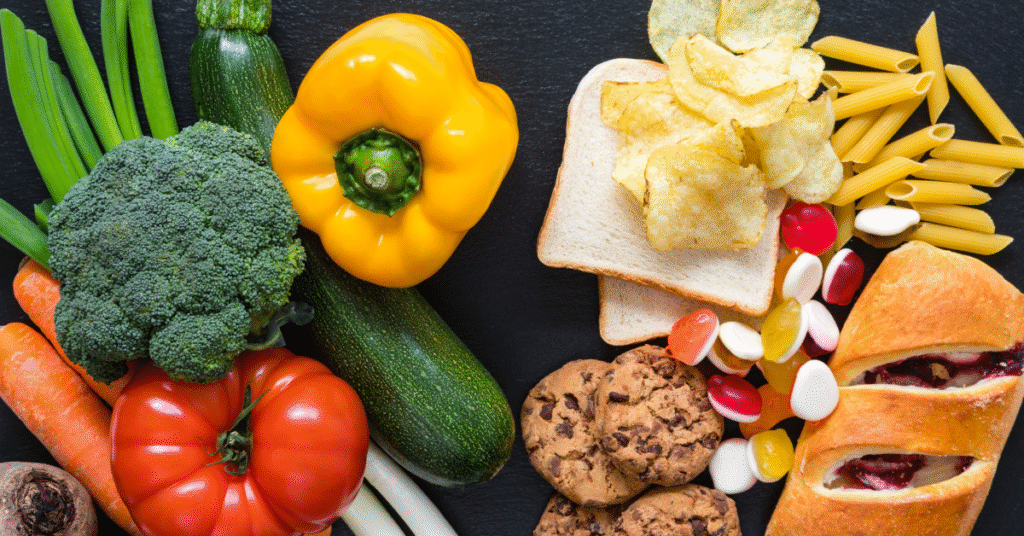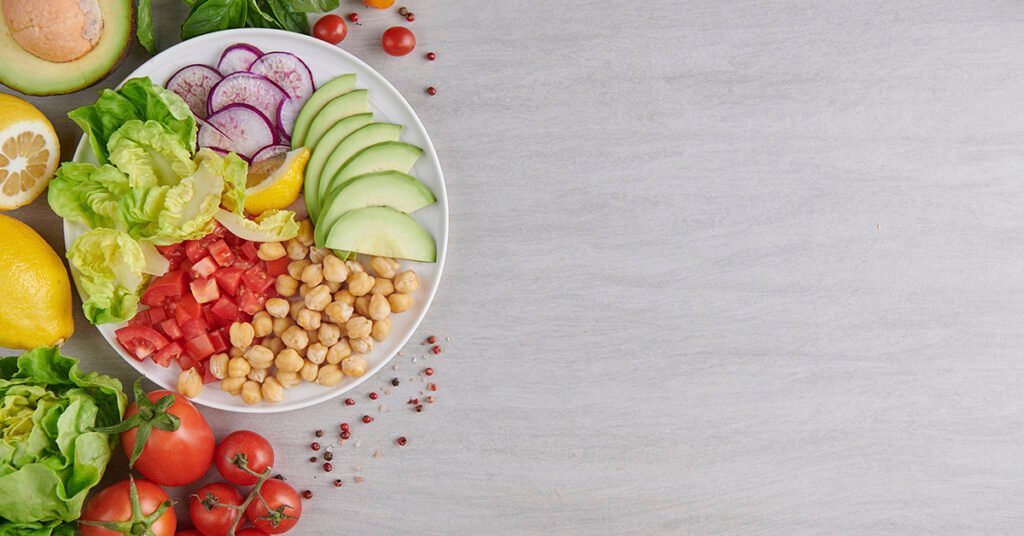Carbohydrates—often called “carbs”—have gotten a bad reputation over the years, especially in the world of weight loss and diet culture. From low-carb meal plans to the rise of keto and paleo diets, carbs are often portrayed as the villain in the battle against body fat. As a result, many people truly believe that eating carbs makes you fat—but is that actually backed by science?
The idea that carbs make you fat is one of the most common nutrition myths circulating online. While it’s true that some carb-heavy foods can contribute to weight gain when eaten in excess, it’s important to understand that not all carbs are created equal—and carbs alone aren’t responsible for fat gain. In fact, carbohydrates are your body’s primary source of energy, especially for your brain and muscles. Cutting them out completely can lead to fatigue, poor concentration, and even long-term health issues.
What Are Carbs, Really?
Before we dive into whether or not carbs make you gain weight, let’s understand what carbohydrates actually are. Carbohydrates are one of the three essential macronutrients your body needs to function, alongside protein and fat. When you eat carbs, your body breaks them down into glucose (sugar), which is used as fuel for your cells, organs, and brain.
There are two main types of carbs:
1. Simple Carbs

Simple carbohydrates are sugars that are quickly broken down by the body and absorbed into the bloodstream. Because they digest so rapidly, they cause sudden spikes in blood sugar and insulin levels, which can lead to energy crashes, cravings, and overeating.
These are often referred to as “empty calories” because they provide quick energy but little to no nutritional value—meaning they’re high in calories but low in fiber, vitamins, or minerals.
Common sources of simple carbs include:
- Candy and chocolate bars
- Soda and sugary drinks
- White bread and refined flour products
- Cakes, pastries, and muffins
- Ice cream and sweetened dairy products
- White rice (less fiber than whole grains)
- Flavored popcorn and processed snacks
These foods are often ultra-processed and engineered to be highly palatable, which makes them easy to overeat. When consumed frequently and in large amounts, simple carbs can contribute to weight gain, fueling the myth that “carbs make you fat.”
But here’s the key: it’s not the carbs themselves—it’s the type and quantity. Simple carbs, when eaten in excess and without enough fiber or protein to balance them, are more likely to lead to fat storage, especially when combined with a sedentary lifestyle.
If you’re trying to lose weight or maintain balanced energy levels, limiting simple carbs and replacing them with complex, whole-food carbohydrates is a smarter and more sustainable choice.
2. Complex Carbs
Complex carbohydrates are made up of longer chains of sugar molecules, which means they take longer for the body to break down and digest. This slower digestion leads to a more gradual release of glucose into the bloodstream, helping to stabilize blood sugar levels, increase satiety, and provide longer-lasting energy.
Unlike simple carbs, complex carbs are typically rich in fiber, vitamins, and minerals, making them a much healthier and more nutritious option. These carbs are found in whole, minimally processed foods that support overall wellness and can be part of a balanced diet—even for those aiming to lose or maintain weight.
Common sources of complex carbs include:
- Whole grains such as oats, quinoa, brown rice, bulgur, and barley
- Legumes including lentils, chickpeas, black beans, and kidney beans
- Starchy vegetables like sweet potatoes, carrots, pumpkin, and butternut squash
- Fruits with skin and seeds, like apples, pears, and berries
- Vegetables such as broccoli, spinach, zucchini, and Brussels sprouts
Eating complex carbs can help control appetite, reduce cravings, and improve digestive health—all of which support healthy weight management. Unlike the refined sugars found in simple carbs, these foods offer nutrient density and promote metabolic health.
This is why the belief that “carbs make you fat” is misleading. In reality, including the right types of carbs, such as whole grains and legumes, can actually help you feel fuller for longer, reduce unnecessary snacking, and support weight loss goals.
When combined with adequate protein, healthy fats, and regular physical activity, complex carbohydrates play an important role in a sustainable, healthy lifestyle. There’s no need to fear these foods—they’re not the problem. The real issue lies in overconsumption of processed, refined carbs, not in complex carbs from whole food sources.
If you’re looking for a convenient and healthy snack to keep you satisfied between meals, check out the best protein snacks from MyProtein. They’re a great way to fuel your body without relying on sugary, refined carbs—and they fit perfectly into a balanced lifestyle.
The Myth: “Carbs Make You Fat”

This belief has become mainstream thanks to the popularity of low-carb and ketogenic diets. The idea is that eating carbs increases insulin, which supposedly promotes fat storage. While it’s true that carbs influence insulin levels, that doesn’t mean carbs directly cause fat gain.
The reality is this: weight gain occurs when you consume more calories than your body needs, regardless of whether those calories come from carbs, fats, or protein.
What can happen is that refined carbs (like white bread, sugary cereals, and processed snacks) are easier to overeat because they don’t keep you full for long. This can lead to an increased overall calorie intake—which is the real cause of weight gain.
So, to be clear: Carbs don’t make you fat—overeating does.
The Truth: It’s About Type and Quantity
One of the biggest reasons the myth “carbs make you fat” persists is because people often don’t differentiate between the types of carbohydrates they consume or the amounts eaten. The reality is that not all carbs are the same, and their impact on your weight and health depends heavily on both their quality and quantity.
Portion Control and Balance Are Key
While complex carbs are far healthier than simple carbs, it’s important to remember that portion size matters. Eating large quantities of any macronutrient—including carbs—can lead to excess calorie intake and weight gain. This is why focusing on both the type of carbs and how much you eat is essential for achieving and maintaining a healthy weight.
Balanced meals that include moderate portions of whole carbs, paired with adequate protein and healthy fats, help regulate appetite and provide sustained energy without causing fat gain.
Key Takeaway:
The belief that carbs make you fat oversimplifies a complex issue. The truth is that:
- The quality of carbohydrates you consume—whether refined or whole—is crucial.
- Simple carbs can contribute to weight gain when eaten in excess, mainly because they encourage overeating and cause blood sugar fluctuations.
- Complex carbs support your health and can actually aid in weight management when eaten in appropriate portions.
- Ultimately, carbohydrate quantity and overall calorie balance determine whether you gain or lose weight.
Understanding this distinction helps you make smarter food choices and dismantles the carb-fear mentality that can hinder your progress toward a healthier lifestyle.
Why Cutting Carbs Can Backfire
Many people turn to low-carb or no-carb diets in hopes of losing weight fast. And yes, these diets often produce quick initial results—but not for the reason you might think.
When you cut carbs drastically, your body loses stored glycogen (a form of energy stored in your muscles), which is bound to water. So, the initial drop on the scale is mostly water weight, not fat loss.
Here’s why slashing carbs can work against your health and goals in the long run:
- Low energy and fatigue: Your body runs on glucose from carbs. Without it, you’ll feel drained.
- Increased cravings: Cutting carbs often leads to binge eating or yo-yo dieting later.
- Mood swings and brain fog: Your brain needs carbs to function properly.
- Nutrient deficiencies: Many carb-rich foods are packed with fiber, vitamins, and minerals.
Rather than avoiding carbs altogether, focus on balance and quality. Carbs can and should be a part of a healthy, sustainable diet.
Bottom Line: Do Carbs Make You Fat?
Let’s wrap it up with the truth:
Carbs alone do not make you fat.
- Eating too many refined, processed carbs can contribute to weight gain—especially if you exceed your daily calorie needs.
- But eating nutrient-dense, whole carbs like fruits, veggies, legumes, and whole grains in moderation is not only healthy but essential.
- Sustainable weight loss comes from balanced eating, regular physical activity, and overall calorie control—not cutting out entire food groups.
Don’t fall for diet myths. Instead of asking “Do carbs make you fat?”, ask: “What kind of carbs am I eating, and how much?”
“This post contains affiliate links. If you make a purchase through these links, I may earn a small commission at no extra cost to you.”
Image source: Canva



